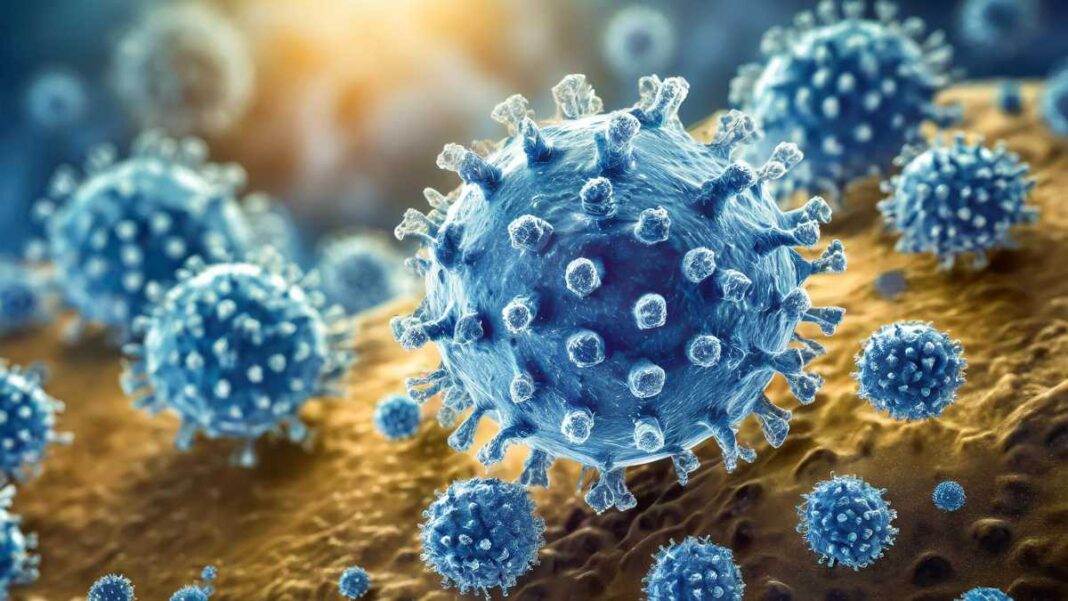Findings from a new study have wide ranging implications as viruses are responsible for between 10 to 20 percent of cancers globally.
Viral infections are thought to be a central cause of between 10 to 20 percent of cancers worldwide, representing a significant portion of the global cancer burden.
A recent discovery may further our understanding of how viruses cause cancer.
Researchers from the Cleveland Clinic uncovered one of the mechanisms that a type of virus called Kaposi sarcoma-associated herpesvirus (KSHV) uses to induce cancer.
The study, published in February in Nature Communications, found that the KSHV virus activated a specific pathway responsible for cell metabolism and the way cells grow and multiply. Using current U.S. Food and Drug Administration (FDA)-approved breast cancer drugs, they were able to reduce the replication of the virus, stop the progression of the lymphoma, and shrink existing tumors in preclinical models.
Jun Zhao, of the Cleveland Clinic Florida Research and Innovation Center, who holds a doctorate in genetic, molecular, and cellular biology is the study’s lead author.
“Our findings have significant implications: viruses cause between 10% to 20% of cancers worldwide, a number that is constantly increasing as new discoveries are made. Treating virus-induced cancers with standard cancer therapies can help shrink tumors that are already there, but it doesn’t fix the underlying problem of the virus,” Mr. Zhao explained in a news release. “Understanding how pathogens transform a healthy cell into a cancer cell uncovers exploitable vulnerabilities and allows us to make and repurpose existing drugs that can effectively treat virus-associated malignancies.”
Kaposi Sarcoma-Associated Herpesvirus
Kaposi sarcoma-associated herpesvirus, also known as human herpesvirus 8 (HHV8), is “A type of virus that causes Kaposi sarcoma (a rare cancer in which lesions grow in the skin, lymph nodes, lining of the mouth, nose, and throat, and other tissues of the body). Kaposi sarcoma-associated herpesvirus also causes certain types of lymphoma (cancer that begins in cells of the immune system),” according to The National Cancer Institute.
According to the news release, Kaposi sarcoma-associated herpesvirus is similar to other herpesviruses in that it is often asymptomatic and stays in the body laying dormant after primary infection. However, when the immune system becomes weakened or compromised, as it does in many elderly people, transplant recipients, or those with HIV or AIDS (acquired immunodeficiency syndrome), the virus can reactivate. In these high-risk immunocompromised groups, the reactivated virus “can trigger aggressive cancers.”
By Emma Suttie








